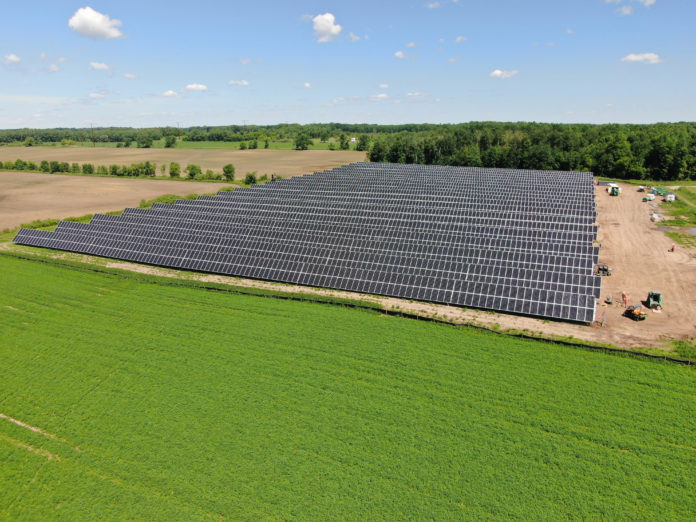Divesting from fossil fuels could be a smart financial choice to help Wisconsin lead the fight against climate change, according to Dem Rep. Greta Neubauer of the state’s climate task force.
But a GOP lawmaker, also on the task force, disagrees.
The Governor’s Task Force on Climate Change Report released in December includes 55 climate solutions across nine sectors. The recommendations aim to help the state to better adapt to and mitigate the effects of climate change, while also seeking environmental justice and economic opportunities in renewable energy and conservation.
One of those proposals is state divestment of fossil fuel stocks and other interests. This recommendation was labeled as a tier-two policy option, meaning it was an issue raised by the public that didn’t draw support from all 31 members. The task force included the recommendation in the report and indicated it may merit further discussion or consideration outside of the task force.
“A growing number of financial analysts and economists argue that fossil fuels will prove to be a bad investment, as climate change continues to accelerate and renewable energy becomes even more cost competitive,” said Neubauer, a Racine Democrat. “Over the past few years, coal and oil stocks have shown great vulnerability and volatility, a trend that has only accelerated during the pandemic. Divestment is not only a symbolic demonstration of our values and our support for a just, sustainable future — it is a reasoned financial choice when the market is already moving away from fossil fuels.”
The divestment idea calls for fossil fuel stocks or other interests be removed from state-owned investments. In practice, this means the sale of any stocks or investments in the top 200 fossil fuel companies owned by the Wisconsin Retirement System and the UW System Foundations and the banning of any future investments in these stocks or other interests.
The Wisconsin Retirement System accounts for approximately 90 percent — or about $129.7 billion — of the more than $143.9 billion of total assets under management at the State of Wisconsin Investment Board. Legislative action could prohibit SWIB from investing in securities of fossil fuel companies as part of the Wisconsin Retirement System. Similar legislation has been proposed in several states, including California, Vermont, Hawaii, New York, Massachusetts and Connecticut.
But another task force member Rep. Mike Kuglitsch, R-New Berlin, argued Wisconsin Retirement System fund managers have a fiduciary duty to participants to maximize returns in an unbiased manner.
“In my opinion, mandated divestment would violate their legal obligations in their duties as investment managers,” he said.
Divestment legislation could also prohibit SWIB from investing in fossil fuel companies by disallowing them as permissible investments. Typically, climate divestment legislation prohibits investment in the top 200 fossil fuel companies, according to the report.
The UW System Foundations presents more complex implementation questions, the report says. The Legislative Reference Bureau analysis states there is no clear process through which the state can require the UW System Foundation to divest funds from the fossil fuel industry because it’s a private nonprofit corporation. As an independent entity, it’s responsible for determining how it invests its assets. There’s currently a movement among UW students in support of voluntary divestment, known as the UW Divestment Coalition.
Meanwhile, WEC Energy Group and RENEW Wisconsin, both with representatives on the task force, did not offer an opinion on divestment.
“The report reflects the diverse views of the Task Force members,” said WEC spokesman Brendan Conway, noting WEC is the largest investor in renewable energy in the state.
-By Stephanie Hoff
WisBusiness.com






